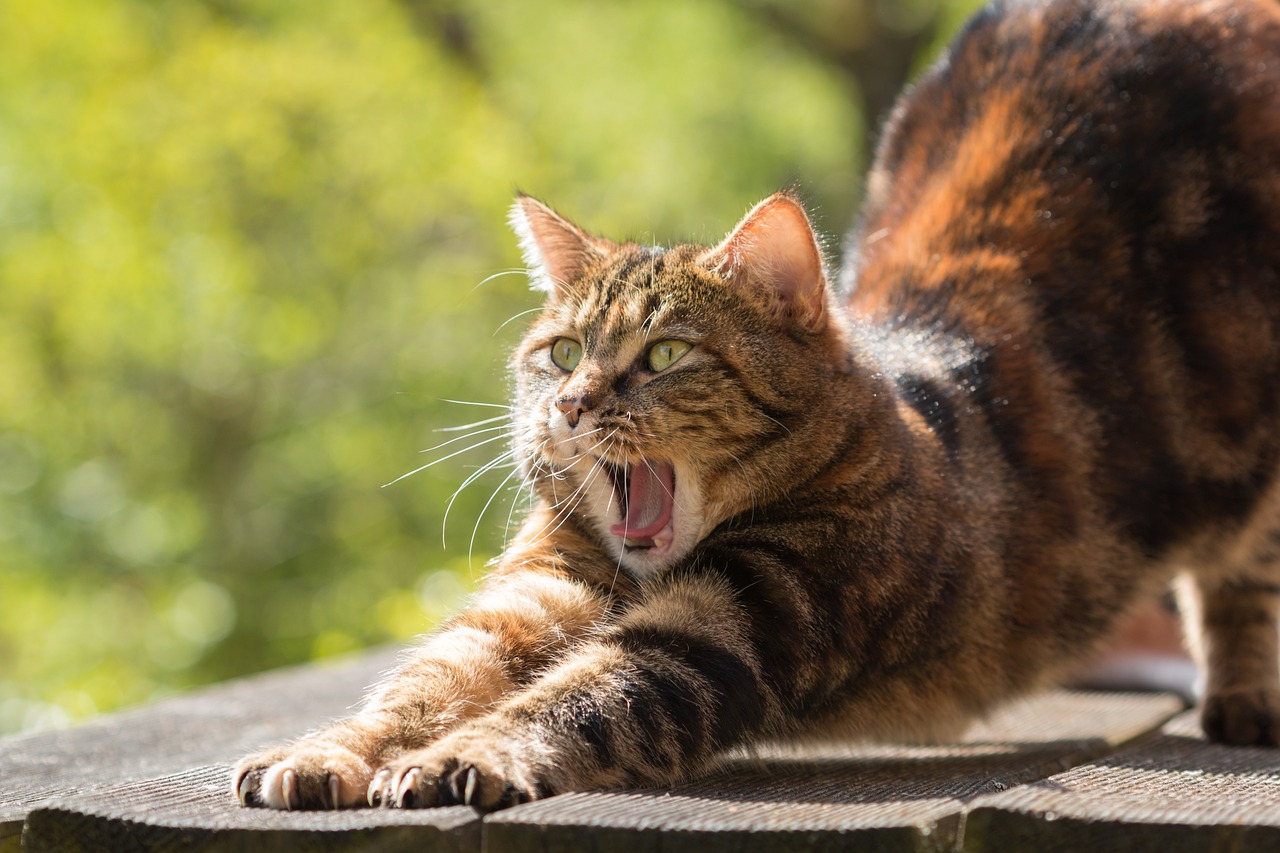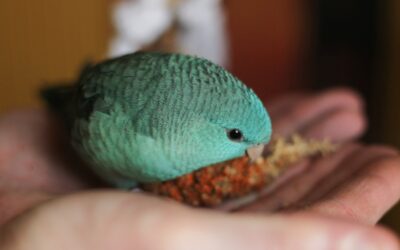Cats are curious and mysterious creatures that can mesmerize anyone with their charm and playful behavior. As a cat owner, it is your responsibility to ensure your furry friend is well-taken care of and healthy. To do that, you need to know the essential information about your cat. From feeding them properly to taking care of their mental and physical health, this blog post will give you a comprehensive overview of the essential cat facts that every pet owner should know.
Nutritional Needs:
Cats are obligate carnivores, which means that they require a diet rich in animal protein. Taurine, an amino acid found in animal proteins, is vital to a cat’s health and must be included in their diet. A lack of taurine can lead to blindness, heart problems, and even death. It’s also crucial to feed your cat high-quality food to avoid harmful additives and fillers. If you are on a tight budget, cat charities often give cat owners in need cat food. You should also be mindful of the number of treats you give them, as too many can lead to obesity.
Hydration:
Cats are notorious for not drinking enough water. Dehydration can be harmful to your cat’s kidneys, leading to urinary tract problems. To encourage your cat to drink more, try providing them with fresh, clean water in a wider bowl. Additionally, adding wet food to their diet can also contribute to their hydration.
Litter Box Maintenance:
To ensure your cat has a clean and healthy living environment, it’s important to scoop their litter box daily and replace it entirely once a week for both male cats and female cats. The litter type you use is also important. Some cats are sensitive to heavily scented litters, while others prefer a coarser texture. Experiment with different types to see what works best for your cat.
Disease Prevention:
Cats are susceptible to several dangerous diseases, which is why keeping up with their vaccines and preventative medications is crucial. Common diseases such as Feline Leukemia, Feline Panleukopenia, and Rabbit Fever all have preventative vaccines. Additionally, regularly giving them flea and tick medication, heartworm preventative, and keeping their environment clean can prevent disease transmission, although this may be a bit more difficult with feral cats.
Mental Stimulation:
Adult cats and kittens are intelligent creatures that require mental stimulation. Have you noticed that your cat claws on furniture and other things? Providing them with a variety of toys, scratching posts, and even rotating their toys can give them the necessary mental stimulation they crave. Additionally, taking time to play with them daily can help prevent behavioral issues such as clawing furniture or aggression.
Cats are truly unique and wonderful pets that bring joy to our homes. As a cat owner, it’s essential to know how to take proper care of them. From their diet to their mental health, following these essential feline facts can help provide your cat with a healthy and fulfilling life. Remember that your cat depends on you for their wellbeing, so it’s crucial to stay educated about their care.

Debunking Common Myths About Cats: The Truth Behind Feline Behaviors
Cats have been domesticated for thousands of years, yet many misconceptions about feline behavior and care still persist. These myths often lead to misunderstandings about cats and may even result in their mistreatment. That’s why it’s important to set the record straight about common myths about cats. Next, we’ll debunk some of the most widespread misconceptions about our feline friends.
Myth #1:
Cats are solitary creatures and don’t need human interaction.
While it’s true that cats are more independent than dogs, that doesn’t mean they don’t need socialization. Cats may seem aloof, but they crave interaction with both their human and feline friends. In fact, studies show that cats who receive regular attention from their owners are less likely to develop behavioral problems. It’s important to show your cats love, and spend quality time with your kitty every day, whether it’s playing, petting or just chatting with them.
Myth #2:
Cats always land on their feet.
This popular belief is partially true, but it’s not foolproof. Cats have a remarkable ability to orient themselves in midair and adjust their body position to land on their feet most of the time. However, a fall from a great height can still cause serious injuries or even be fatal to cats. That’s why it’s important to keep your windows and balconies secured with screens or other barriers, to prevent your kitty from falling.
Myth #3:
Cats are self-cleaning and don’t need baths.
While cats are fastidious groomers who clean themselves daily, they also groom themselves to regulate body temperature. They also still benefit from occasional baths. Cats with long hair or skin allergies may require more frequent bathing to maintain their cleanliness and comfort, but short haired cats like the Siamese cat still benefits from a bath just as much. However, most cats hate water and bathing, so it’s important to introduce them to the concept gradually and with lots of rewards and treats. Always use cat-friendly shampoo and rinse them thoroughly to avoid skin irritation.
Myth #4:
Cats don’t need veterinary care as often as dogs.
This myth is far from the truth and can be harmful to your cat’s health and longevity. Cats are often masters at hiding signs of illness or pain until they become severe. That’s why it’s crucial to take your cat to the vet for regular checkups, vaccinations, and preventive care, even if they are a house cat, pet cat, shelter cats, ect. Cats are also prone to dental and urinary problems (more common in a female cat) that can be prevented or treated with proper veterinary care. So, don’t take your cat’s health for granted and schedule regular appointments with your vet.
Myth #5:
Cats are low-maintenance pets and can be left alone for days.
Cats are low-maintenance pets in some ways, but they still require daily care and attention. They need fresh food and water, clean litter boxes, playtime, and affection. Leaving your cat alone for extended periods can lead to stress, loneliness, and even destructive behavior. If you need to leave town, make sure to arrange for a trusted pet sitter or boarding facility to care for your kitty in your absence.

20 Fun Facts About Cats That You Probably Didn’t Know
If you’re a cat lover, you know there is nothing more enjoyable than spending time with these furry felines. In fact, cats are one of the most beloved domesticated animals in the world. They are cute, cuddly, and undeniably entertaining. But how much do you really know about these fascinating creatures? To end on a brighter note, we’ll share 20 fun cat facts that you probably didn’t know.
Fun Fact #1
Did you know that cats can make over 100 different sounds? Have you heard your cats purr? While cats meow often, it is not their only way of communication.
Fun Fact #2
Cats have five toes on their front paws, but most cats walk only four toes on their back paws. Some cats, however, have extra toes, which is called polydactylism.
Fun Fact #3
In ancient Egypt, cats were worshipped as gods, and if you killed a cat, you could be sentenced to death.
Fun Fact #4
Unlike dogs, cats cannot taste sweetness. They lack the necessary taste buds to detect it.
Fun Fact #5
Cats can run up to 30 miles per hour, making them one of the swiftest animals on earth.
Fun Fact #6
While most house cats are right-pawed, some are lefties, and others are ambidextrous.
Fun Fact #7
A group of cats is called a clowder, while a group of kittens is called a litter.
Fun Fact #8
The smallest cat breed in the world is the Singapura, which weighs only four to eight pounds.
Fun Fact #9
A cat’s sense of smell is 14 times better than that of a human.
Fun Fact #10
Cats spend around two-thirds of their life asleep. On average, cats sleep 12 to 16 hours per day, especially domesticated cats.
Fun Fact #11
The largest recorded litter of kittens is 19. That’s a lot of cuteness in one basket!
Fun Fact #12
While most cats have green or yellow eyes, some cats known as white cats have blue eyes.
Fun Fact #13
A cat’s nose pad is as unique as a human fingerprint, with no two being the same.
Fun Fact #14
Most cats are lactose intolerant, so giving them milk is not such a good idea.
Fun Fact #15
In the Middle Ages, cats were associated with witchcraft and were often hunted and killed.
Fun Fact #16
A cat’s heart beats twice as fast as a human’s.
Fun Fact #17
Some cats can swim, but most of them actually hate water.
Fun Fact #18
A cat’s tongue is covered in tiny, spiky barbs called papillae, which they use to clean themselves and remove dead hair and dirt from their fur.
Fun Fact #19
The longest-lived cat on record was named Creme Puff, who lived for 38 years and three days.
Fun Fact #20
Cats have a special collar bone called the clavicle that allows them to twist and turn in seemingly impossible ways.
So, there you have it, 20 fun cat facts! Hopefully, you have learned something new and interesting about these amazing creatures. With their unique personalities and cute faces, cats have been the faithful companion of humans for thousands of years. So whether you’re already a cat owner or just a cat fan, never stop learning and appreciating these fascinating creatures.
Conclusion:
Cats are fascinating animals with unique personalities and behaviors. However, many misconceptions about cats persist and can lead to their mistreatment or neglect. By debunking these common myths and understanding cats’ true nature and needs, we can provide better care and companionship for our feline friends. Remember that cats are social beings who benefit from our attention, and don’t hesitate to consult with your vet or behaviorist if you have any concerns about your cat’s health or behavior.

Kate’s K9 Pet Care
Kate’s K9 Pet Care understands how much you love your feline friends. We treat your cat as our own, that’s why we provide exceptional pet care services. Give us a call today!







